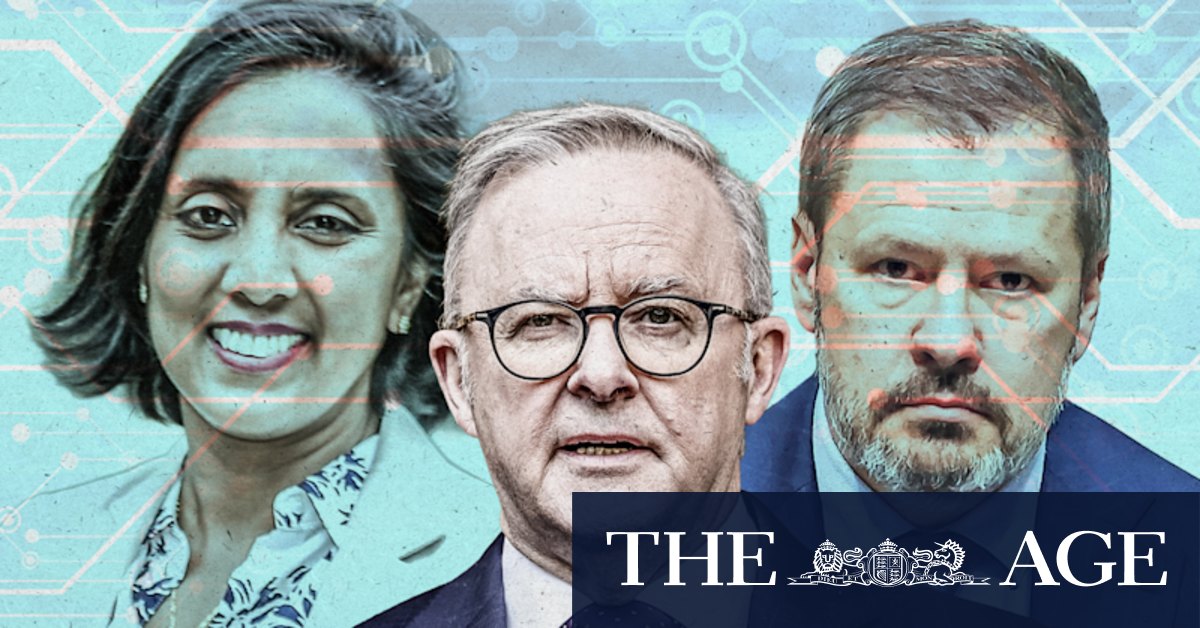Labor senator Michelle Ananda-Rajah, a leading researcher on using AI to diagnose disease before she entered parliament, has been lobbying colleagues to embrace the new technology. She said she was “trenchantly opposed” to Husic’s model, which she claimed would stymie a local AI industry and deprive the nation of wealth.
Loading
The Australian Council of Trade Unions, which holds sway with dozens of MPs in the Labor caucus, is demanding legislation to bar AI in businesses that cannot reach agreements with workers. Pushing in the other direction are the Coalition, business groups and the Productivity Commission, which urged the government to spurn calls for binding regulation on AI because it could be the best fix for declining living standards in a generation.
The contest over AI policy has sharpened ahead of Labor’s economic roundtable later this month, where the tech revolution will be a flashpoint between business groups and some economists on one side and unions and more pro-regulation voices on the other.
Chalmers last week said he wanted to find a “sensible middle path which recognises the big economic upside of artificial intelligence without forgetting our primary responsibility is to people and workers”.
The EU’s move to take a world-leading role in regulating AI has attracted the ire of the Trump administration, which has close links to tech billionaires and Silicon Valley. Britain has also put on the backburner its plans to guard against the potentially harmful elements of AI, which could include job losses, uncontrollable bots, deepfakes and privacy violations.
Loading
Opponents of an AI act believe local laws would do little to curb any possible harm given Australia has no major AI firms in its jurisdiction. Specific pitfalls, such as sexually explicit deepfake images, were better dealt with by new criminal laws, they say.
Debate began last week on whether large-language models such as ChatGPT should be exempted from copyright laws so they can be trained on news and music content. Executives from News Corp and Nine Entertainment, owner of this masthead, argued such a move would amount to theft.
The media bosses were self-serving and prioritising faltering business models ahead of the national interest, Ananda-Rajah said.
“It is not theft,” she said, but rather a move that would hand Australian alternatives to ChatGPT, such as the one being developed by local firm Maincode, access to content that would allow them to build a domestic AI sector.
“It’s not necessarily going to stop people from buying that book or reading that newspaper article in the format that they have.
“Why would we, even before we get to create [an AI industry], regulate with a specific act?
“If we ring-fence our own data, then we are cutting ourselves off at the knees from the very beginning. I have seen the depth of the talent we have in Australia, and it would be an absolute travesty if we let this innovation wave pass us by.”
However, Maincode boss Dave Lemphers, who is building what could be Australia’s answer to OpenAI, told The Australian Financial Review on Thursday that the copyright change proposed by the Productivity Commission was wrong and that firms were already scraping content without proper compensation.

